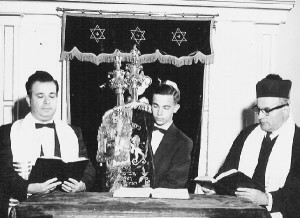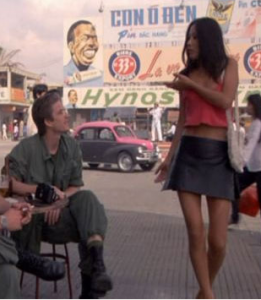
I didn’t grow up in a religious family, and I’ve only evinced an interest in Judaism in my adulthood. As such, I didn’t engage in most of the primary spiritual rites that describe a Jewish life: I had a circumcision but not a bris, no bar mitzvah, no Kosher, no nothing.
Until now. The research for my book, Am I a Jew?, brought me last weekend to the home of a well-known Orthodox rabbi in Monsey, New York, where I spent the sabbath with his friends, acquaintances, and eleven children.
Now, keep in mind, this was for research, a way for me to get a feel for how Orthodox Jewish people go about their religious business. In that regard, I learned a lot: on Purim, apparently, observant Jews have a positive obligation to get drunk. This, I must admit, is a part of the religion I didn’t know, and that Jewish religious leaders interested in propagating the faith might do more to inform people about. I learned that Orthodox Jews—or at least some of them—believe that evolution is referenced in the Torah, that Judaism isn’t a religion (it’s a “relationship”), and according to one young man I met, a seasonal worker in a kosher wine factory, it is important to “rock on” with Hashem (that’s God) in order that we might take our spiritual life “to another level.” None of this came up in “Fiddler on the Roof.”
One thing I had expected, and which didn’t disappoint, is that Orthodox Jews can do some praying. In Hebrew. Which I don’t read. So a good portion of my stay in Monsey was spent listening to people wearing small black caps mumble in an ancient language. Occasionally, all those assembled would shout “amein” in unison, click their feet tight together, take a few steps forward … and then fall back into the inscrutable mumbling.
During one of these episodes the rabbi, a gregarious and welcoming fellow, ceased mumbling and turned to me. “Did you have a bar mitzvah?” he asked. No, I said. “You want one?”
One of the key elements, I think, of journalism is the ability to say yes. I didn’t really want a bar mitzvah. But I wanted to be able to write about it for my book (which I will, in greater detail than found here). After only a moment’s hesitation, I agreed.
It was something of a quickie process: I was hauled up in front of the other men (the women were in the kitchen) and asked to repeat a few prayers. I did and then the rabbi asked me if I had a Hebrew name. I didn’t. He asked did I have one in mind, perhaps. On the spur of the moment I mentioned that I had found inspiration for my book in reading one of the great works of Jewish philosophy, The Guide for the Perplexed, a challenging and confusing tome written in the 12th century by the Jewish Aristotelian scholar, Maimonides, or Moses ben-Maimon, or the “Rambam” (an acrostic—Rabbi Moses ben Maimon, Rambam), or Moshe, son of Maimon.
“Moshe it is,” the rabbi said, seizing on my answer. “What’s your father’s Hebrew name?” I wasn’t sure he had one, so the rabbi said I would be Moshe ben-Avraham, or “son of Abraham,” which is another name for all Jews, who are believed to be descended from the Biblical patriarch.
They wrapped me in a prayer shawl, again with the praying, and then I was a man. The joyous conclusion occurred when candies were passed around and I was pelted by man and boy alike, this last, a nod to the fact that a bar mitzvah is a blessing from God, one that exempts Jewish men from Judaism’s worse punishment—stoning to death. They stoned me, then, with sucking candies.
Whole thing took all of ten minutes.


